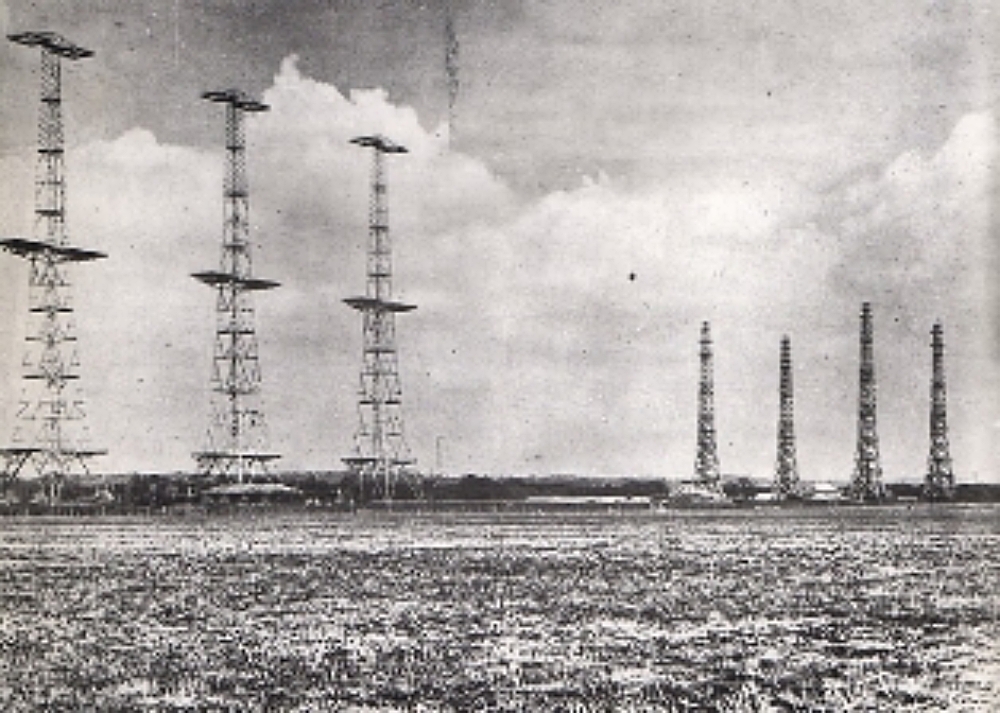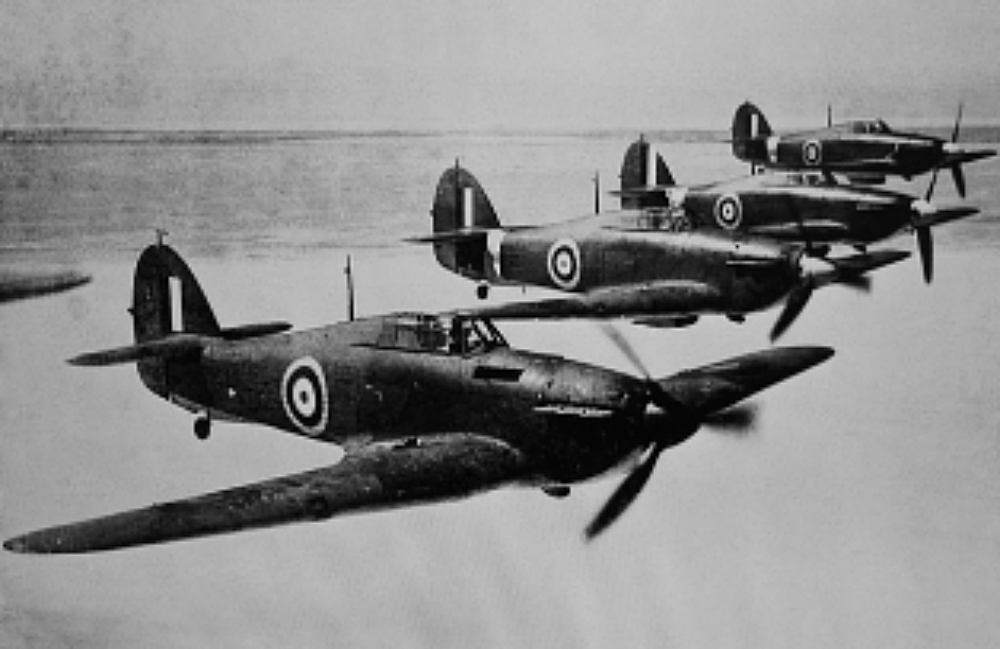Red alert
AUGUST 18th 1940 was a highly significant date in World War Two. It was the turning point in the Battle of Britain as the German air force concentrated its attacks on targets in southern England.

Hermann Goering, head of the Luftwaffe, promised Hitler that his planes would obliterate London and make way for the Nazi invasion of Britain. He had chosen the 25th of August as the day to make the biggest-ever air raid on the capital but knew he first had to knock out the British radar system. This was proving to be one of the most valuable arms of Britain’s defence by detecting virtually every enemy bomber before they even crossed the English coastline, making it possible for Spitfire and Hurricane fighters to intercept them before reaching their targets.
Vital in that chain of radar detector stations was RAF Poling, between Worthing and Arundel. With its four huge radar detector masts pointing into the sky like giant beacons, they presented a target you wouldn’t think could have been missed by the squadron of Junkers 87 Stuka dive bombers sent to obliterate them on that fateful August Sunday.
Now, for the first time, I can add how an “insider” – the senior local ARP controller – described that raid in his official report written on the day it actually happened.
Access to what is possibly the only remaining copy of his report gives immediacy to a dramatic wartime event that would be impossible to simulate 67 years later.
The report was addressed to the County Controller, Chichester, and headed “Air Raid Damage, Poling, 18.8.1940.” This is what he wrote…….
“AT about 14.35 hours during a “Red” warning, a force of enemy planes believed to number between 20 and 30 made an attack on Poling RAF Station, in the course of which 87 bombs of various sizes (including heavy, medium and light types) were dropped.
Forty-four fell inside the compound, the remainder within a circle of under three-quarters-of-a-mile diameter. Only two of the bombs were unexploded.
The attack appears to have been made from the south, then a sharp circle round the Station with bombs falling in all directions. Some direct hits were made on hutments and some private motor cars were set on fire in the station but the damage, considering the weight of bombs dropped, was not nearly so heavy as would be expected.
As far as can be ascertained, there were only two casualties (one shock and one light injury) in the station, with no civilian casualties outside.
The population in vicinity is light but most of the houses in South Poling have suffered damage to tiles, windows, ceilings, etc.
Express information was received from Arundel police at 14.37 with the request that casualty and fire services be sent. This was complied with at once and Express Report sent to County Control at 14.43.

Services at Poling consist of two wardens and a First Aid Point. One warden was on duty at the RAF Station. Chief Warden at once left Control Centre to render assistance and being satisfied their own Parishes were unaffected, parish Head Wardens of Lyminster and Warningcamp (adjoining districts) also attended and gave valuable help
After receipt of “White” message at 15.02, I also attended with Deputy Chief Warden.
One Junkers 87 machine was forced down about one mile south of the station and the two occupants taken prisoner and conveyed to East Preston Institution by Civil Defence Ambulance. As far as can be gathered, all local population took shelter.
Operation of Services
Turnout of Services efficient. Original information received was vague but in view of the
number of explosions heard in Report Centre at Worthing, it was decided to send two F.A.P, two ambulances and two casualty cars stationed at East Preston to the scene.
Reporting System
With police help this worked very well and after arrival of Chief Warden and others, quite adequate. Interim reports were despatched at frequent intervals and final report at 18.20.
Working of Services
There was no delay on the part of any Service. In order to compile full reports, air raid wardens and officials had to travel considerable distances on foot over fields and rough ground.
First Aid Points and Ambulances Already dealt with in Operation of Services. Leaders showed initiative and good knowledge of duty by returning at once to Depot.
Other Services Officer Commanding Station asked for assistance of road repair gang, which attended from Lancing Manor and helped to clear roads within compound and also effect temporary repair to concrete track at entrance to Station. They returned to Lancing at 18.00.
Some people living in houses near the Station were evacuated by Military and made their own arrangements for temporary accommodation.
No request made for other Services except Fire; A.F.S. from East Preston attended and dealt promptly with the motorcars etc., inside compound. There was no spread of fire and it was quickly subdued.
General Remarks
As indicated in Situation Report, congestion of traffic caused by private cars of sightseeing civilians from Worthing and other districts was caused at Poling Corner on A27 road. If the incident had required other Services to attend, I am afraid some delay would have been caused. RAF personnel worked hard on traffic duty at this spot but the flocking of cars and cycles to scenes of damage is to be deplored.
People are naturally curious and air raid damage is new to most but few of those present today could have thought what a splendid target they made for any lone raider who may have returned with view to “mopping up” and machine-gunning workers.
I feel very deeply on this point and think it should be the subject of strong comment and action from a higher source than myself.
To conclude with a minor “grouse.” At 00.51 hours, 19th August, Arundel Police telephoned Chief Warden who was sleeping at Headquarters and stated the Armaments Officer from Tangmere RAF Station had informed the officer commanding Poling that he considered there were at least a dozen unexploded bombs outside the compound and that Poling should be cleared of civilian population at once.
This did not coincide with our experience and inspection.
We decided to report the facts to County Control and ask for the immediate attendance of a bomb disposal officer. As a result, county Action Officer gave the local billet of Sergeant i/c Bomb Disposal Party working on unexploded bombs that fell on Angmering on 13th.
A visit was paid at once to the address where it was learned the Sergeant had already visited Poling and was satisfied that our report was correct.
Discretion was therefore used and no further evacuation ordered and Police so informed.”
FOOTNOTE by Freddie Feest: Despite its size and ferocity the air raid failed to knock out Poling and its radar detectors, none of which were hit by the enemy bombers. The pylons of Poling went on to play a major role in winning the Battle of Britain.